Table of Contents
When people search “mini implant vs regular”, they usually want a clear and simple answer: mini dental implants are smaller, less invasive, and cheaper, while regular dental implants are larger, stronger, and more durable.
Both are used to replace missing teeth, but the choice depends on your jawbone strength, overall oral health, and budget. Mini implants (also called mini tooth implants or dental mini implants) are often used for dentures or small teeth, while regular implants (sometimes called conventional or traditional implants) are ideal for full teeth replacement with higher stability.
Here’s what to expect in this guide:
- A direct comparison of mini vs regular dental implants
- Cost differences and when each is worth the investment
- Performance, success rates, and failure risks
- Special cases like full mouth mini dental implants and mini implants dentures
Newer techniques like screw less dental implants
What Are Regular (Conventional) Dental Implants?
Regular implants are the standard type most people think of: a titanium screw (3.5–6 mm wide) surgically placed into the jawbone, topped with an abutment and crown.
- Best for: long-term tooth replacement, molars, and full mouth cases.
- Placement: usually requires multiple visits and healing time.
- Cost: higher than mini implants, but more durable.
Mini vs Regular Dental Implants: Quick Comparison
| Feature | Mini Dental Implants | Regular Dental Implants |
| Size | 1.8–3 mm (thin) | 3.5–6 mm (thicker) |
| Procedure | Less invasive, often one day | More invasive, requires healing |
| Best For | Dentures, small teeth | Single teeth, molars, full arch |
| Cost | Lower | Higher |
| Durability | Shorter lifespan | Long-lasting, stronger |
| Success Rate | Good (but higher failure risk) | Very high |
Cost Comparison: Mini vs Regular Implants
- Regular implants: $1,500 – $6,000 per tooth
- Full mouth mini implants: cheaper but may need replacement sooner
- Full mouth regular implants: expensive but permanent
Read: What are the three types of dental implant?
Read: Why dental implants are so expensive?
Performance & Success Rates
- Mini implants: Higher chance of failure if jawbone is weak. Studies show they may last 7–10 years.
- Regular implants: Can last 20+ years, success rate above 95%.
Special Cases: Dentures & One-Day Implants
- Mini implants for dentures: Popular for stabilizing loose dentures.
- One-day implants: Mini implants are often placed and used the same day.
- Traditional implants: Need healing before final crown.
Screw less Dental Implants
Some patients ask about screw less dental implants or dentures. These are advanced systems where the crown is cemented or clipped instead of screwed, giving a more natural look. While not as common, they are an alternative to both mini and traditional implants.
Which Is Better: Mini or Regular?
- Choose mini implants if:
- You want a faster, less invasive option
- You’re stabilizing dentures
- Your jawbone is thin
- You want a lower upfront cost
- You want a faster, less invasive option
- Choose regular implants if:
- You want maximum durability
- You need molars replaced
- You want a permanent, lifelong solution
- You can afford the higher cost
- You want maximum durability
What Are Mini Dental Implants?
Mini dental implants are small titanium screws (1.8–3 mm wide) that act like artificial tooth roots. They’re thinner than traditional implants and don’t always need abutments or bone grafting.
- Best for: stabilizing dentures, small teeth, or patients with thin jawbone.
- Placement: often done in one day, less invasive.
- Cost: usually cheaper than regular implants.
Wanna know:
How to relieve pain from dental implant
Why no dairy after dental impant surgery
Frequently Asked Questions
Q1. How often do mini implants fail vs regular?
Mini implants have a slightly higher failure rate (about 10–15%) compared to regular implants (under 5%).
Q2. Are mini implants cheaper than regular implants?
Yes, mini implants cost much less but may not last as long.
Q3. Can anyone get mini implants?
Most people can, but those with severe bone loss or heavy bite force may need regular implants.
Q4. Do mini implants look natural?
Yes, especially for small teeth or dentures, though regular implants look more natural for molars.
Q5. What are screw less dental implants?
They are implants where the crown attaches without screws, offering a seamless look.
Checkout the tools: Dental surgery, Root Elevator, Dental instruments, Periodontal
Collective Thoughts:
Choosing between mini implants and regular dental implants depends on your oral health, bone density, and long-term goals. Mini implants are less invasive and cost-effective, while regular implants provide more stability and durability. Both options can restore confidence, function, and aesthetics if placed by an experienced dentist.
Whether you’re considering mini implants for dentures, one-day dental implants vs traditional implants, a single front tooth implant, a molar implant, or even a full mouth restoration, it’s important to consult a qualified implant specialist. With the right guidance, you can select the best implant option to match your needs and enjoy a healthy, lasting smile.

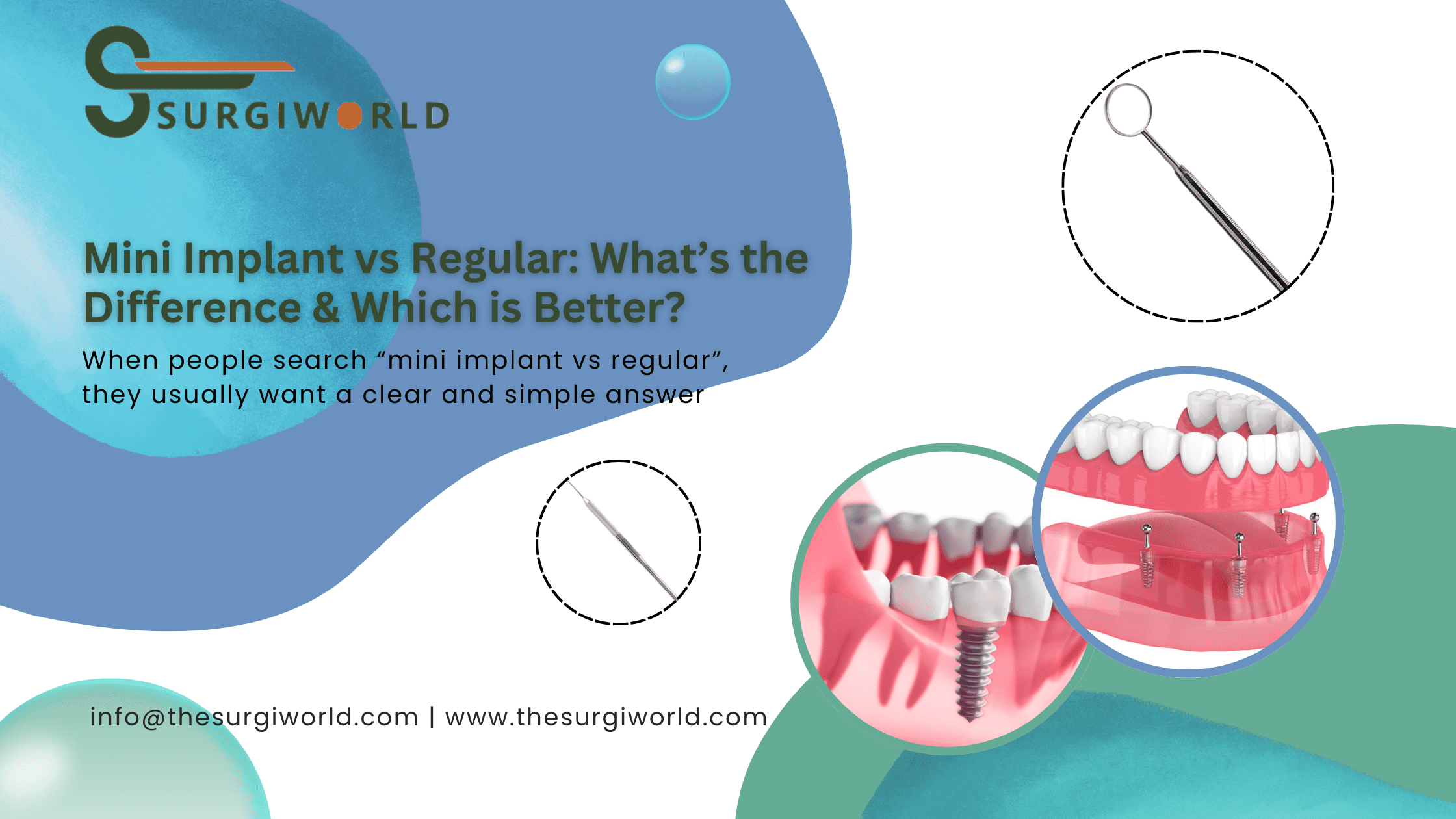
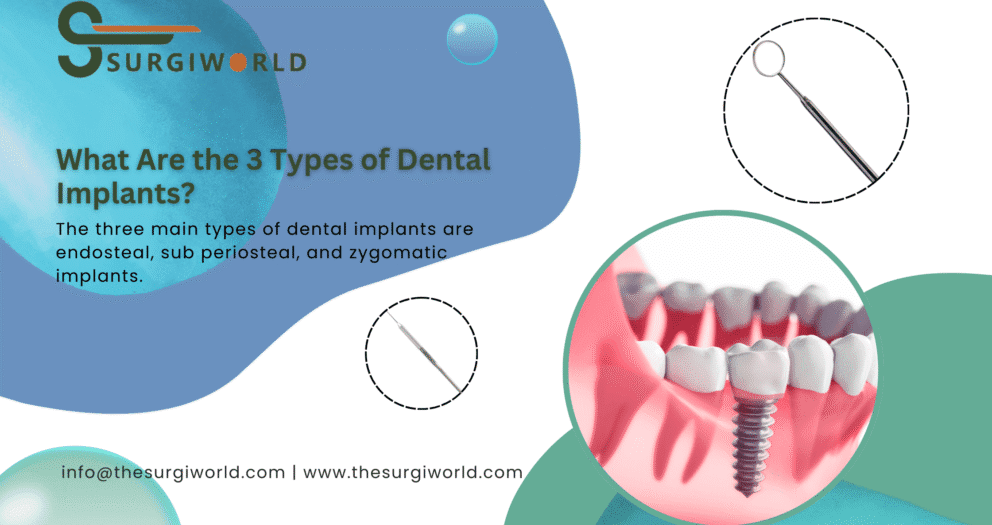
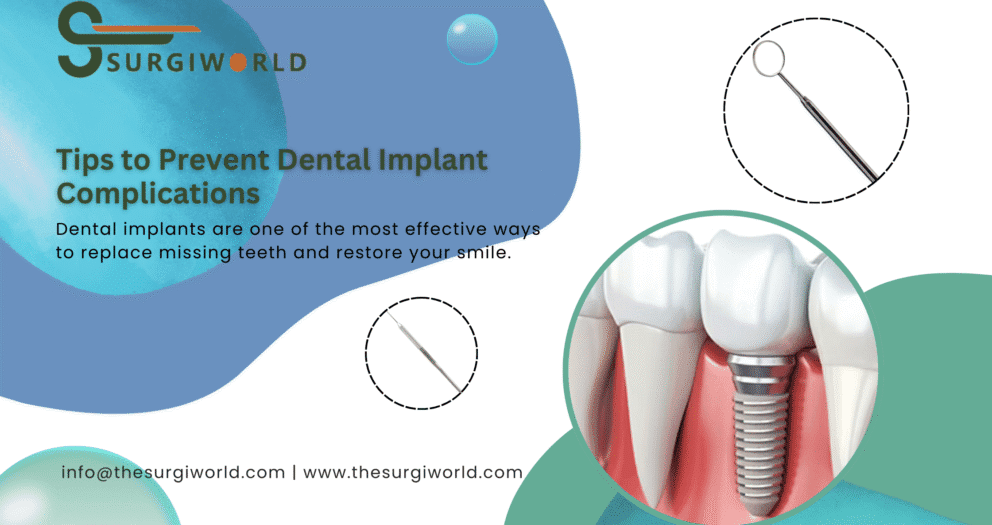
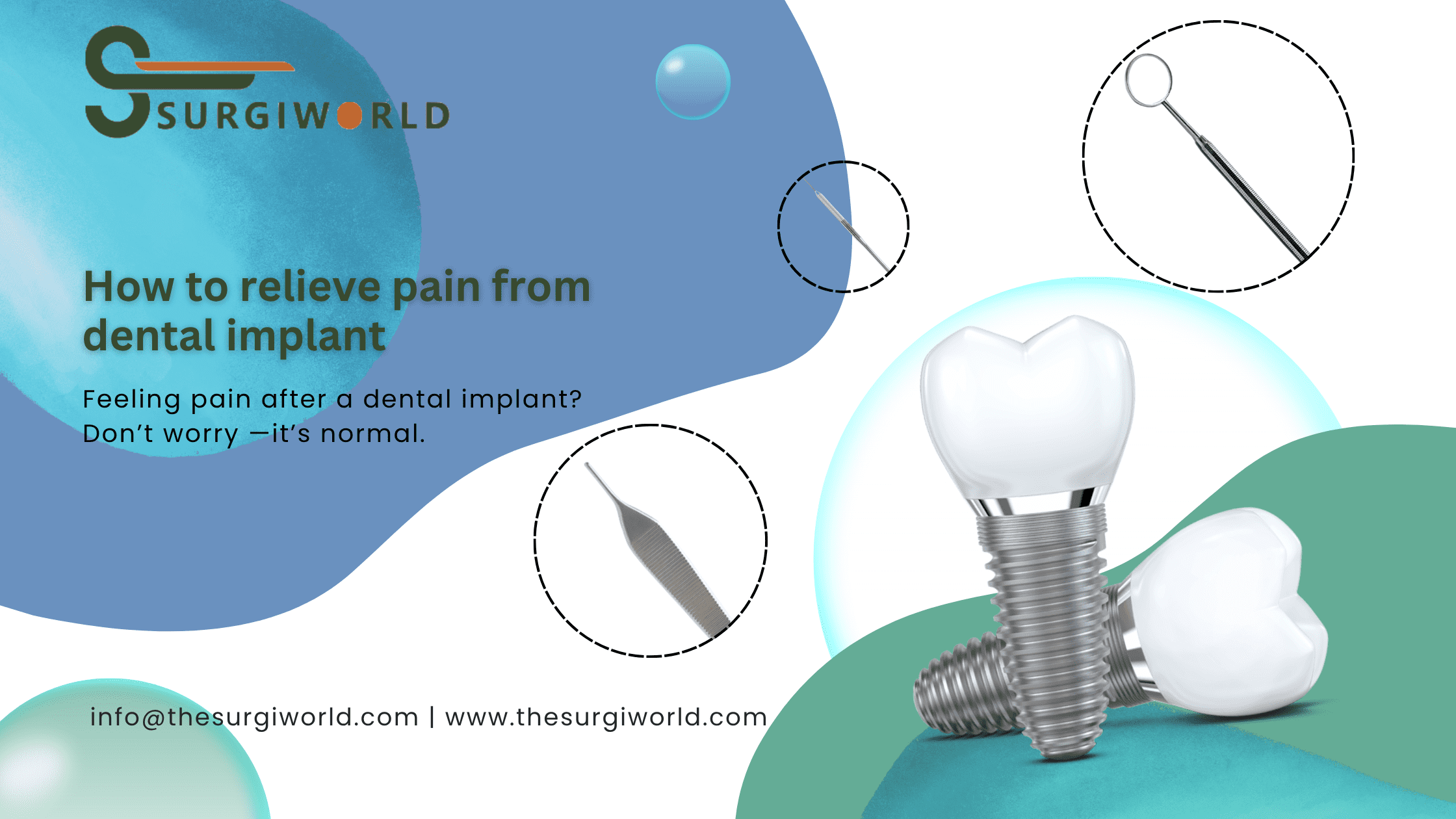
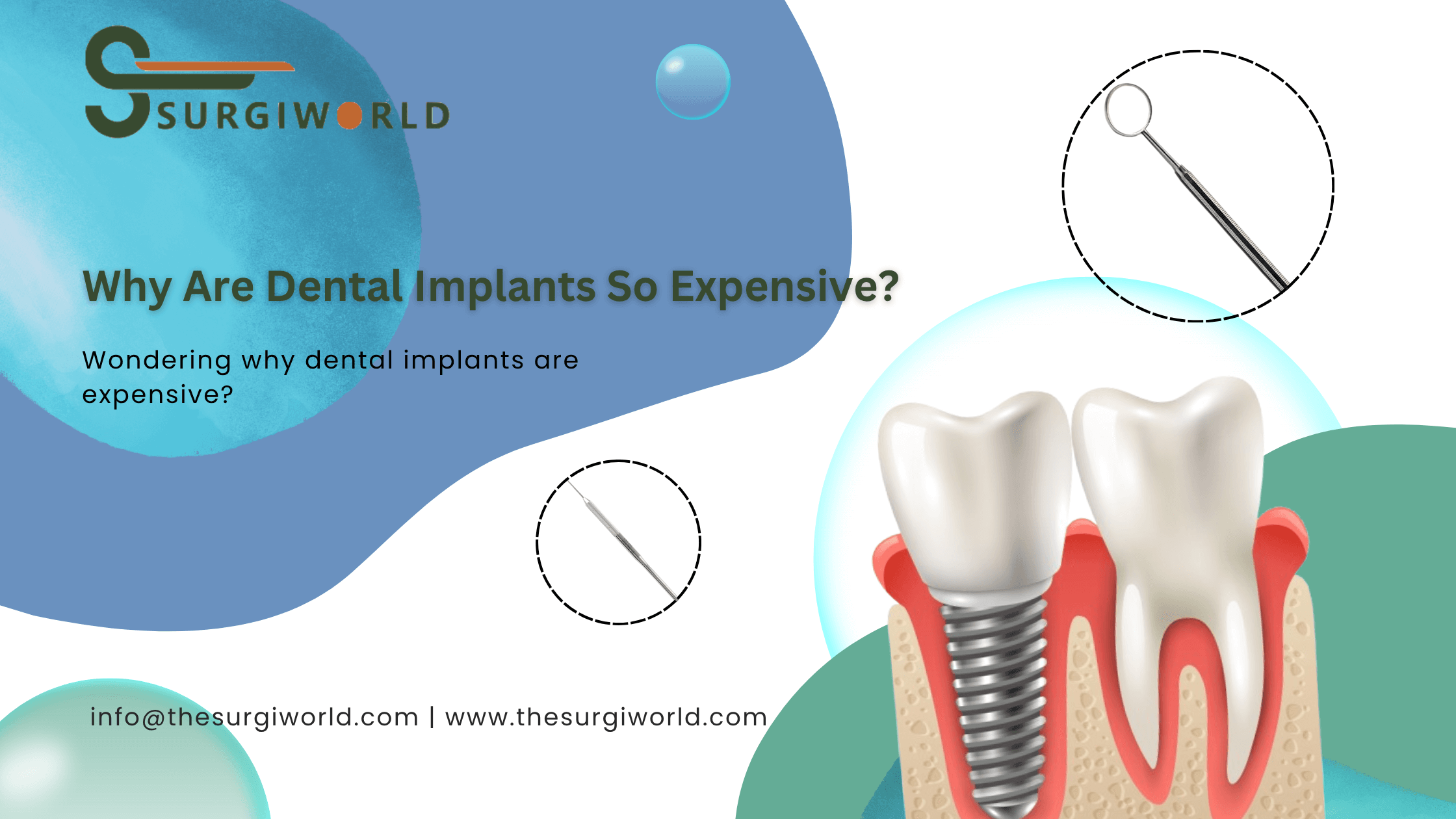

Write a comment
You must be logged in to post a comment.